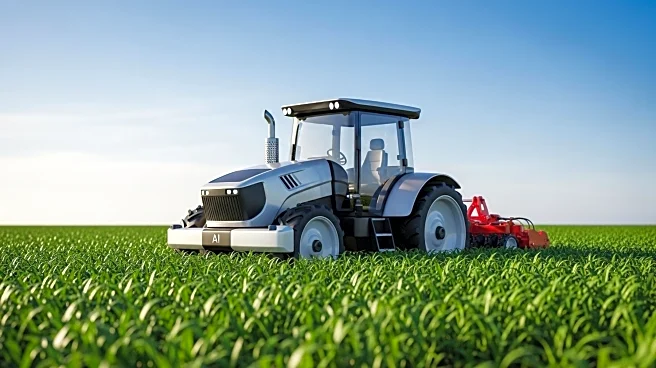What's Happening?
CNH Industrial is leveraging artificial intelligence to transform agriculture, making farming smarter, faster, and more sustainable. AI systems on CNH combines, tractors, and sprayers optimize inputs and improve productivity and yields. Technologies like SenseApply™ sprayer automation use machine vision to apply treatment only where needed, reducing herbicide use and increasing efficiency. Experts from CNH and Purdue University highlight AI's role in shaping the future of farming, addressing challenges such as constrained land, climate change, and labor shortages. CNH's commitment to innovation and sustainability is evident in its strategic direction and investments in digital agriculture.
Why It's Important?
AI's integration into agriculture represents a significant advancement in addressing the industry's challenges. By optimizing resource use and improving yields, AI technologies contribute to sustainable farming practices and help farmers adapt to changing environmental conditions. This transformation is crucial for ensuring food security and reducing the environmental impact of agriculture. CNH's efforts demonstrate the potential of AI to drive innovation and enhance productivity in one of the world's oldest industries.
What's Next?
As AI continues to evolve, its applications in agriculture are expected to expand, offering new solutions for sustainable farming. CNH and other industry leaders may invest further in research and development to explore additional AI-driven technologies. Policymakers could support these innovations by providing incentives for adopting sustainable practices. The ongoing dialogue between industry experts and academic institutions will likely foster collaboration and drive progress in digital agriculture.
Beyond the Headlines
The use of AI in agriculture raises ethical considerations regarding data privacy and the impact on traditional farming practices. It also highlights the need for equitable access to technology, ensuring that small-scale farmers can benefit from these advancements. The long-term implications of AI-driven agriculture may include shifts in labor dynamics and the development of new skills and expertise.












